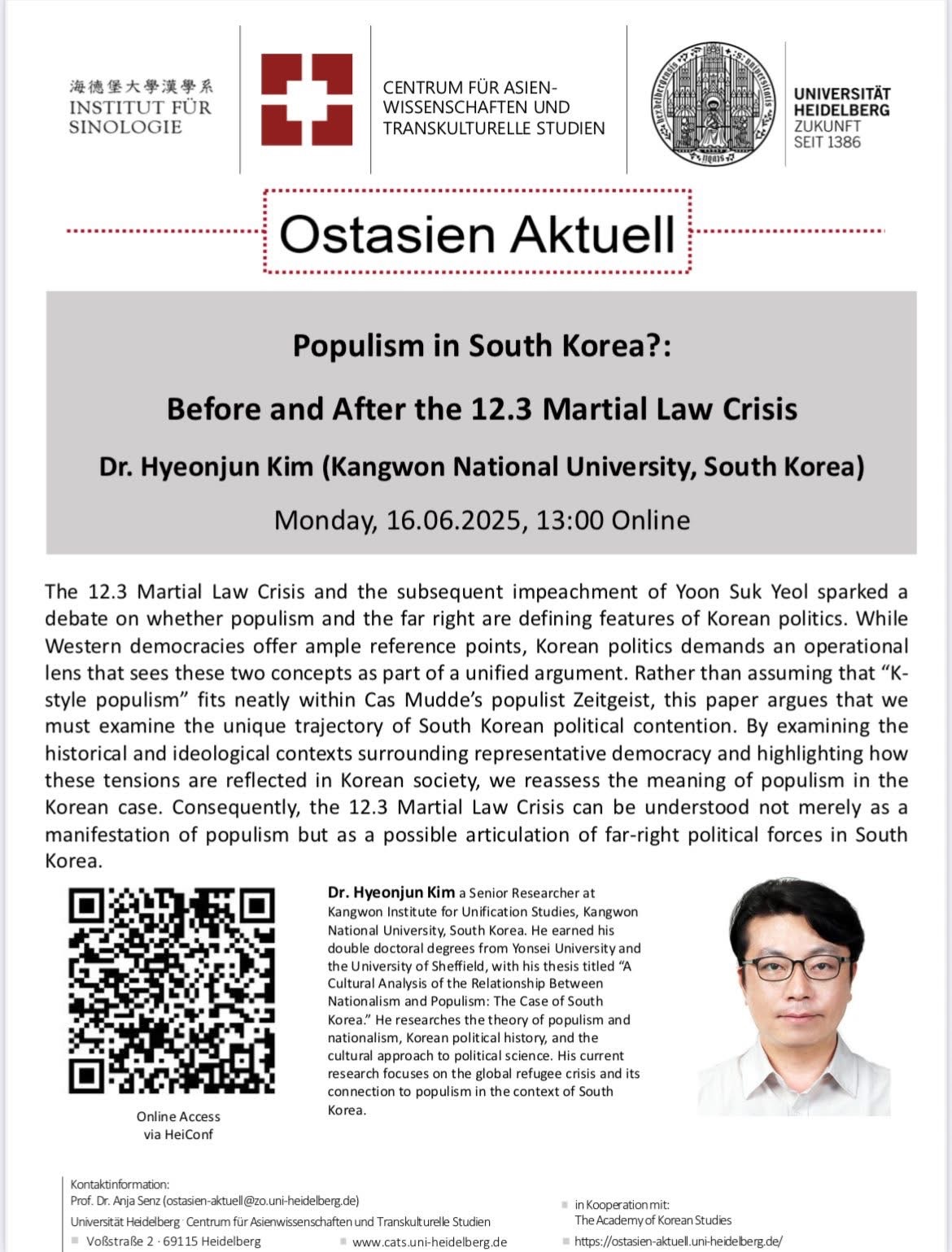time zone will be applied.
Report this post?

You are cordially invited to the following online public talk on Populism in South Korea.
Abstract:
The 12.3 Martial Law Crisis and the subsequent impeachment of Yoon Suk Yeol sparked a debate on whether populism and the far right are defining features of Korean politics. While Western democracies offer ample reference points, Korean politics demands an operational lens that sees these two concepts as part of a unified argument. Rather than assuming that “K-style populism” fits neatly within Cas Mudde’s populist Zeitgeist, this paper argues that we must examine the unique trajectory of South Korean political contention. By examining the historical and ideological contexts surrounding representative democracy and highlighting how these tensions are reflected in Korean society, we reassess the meaning of populism in the Korean case. Consequently, the 12.3 Martial Law Crisis can be understood not merely as a manifestation of populism but as a possible articulation of far-right political forces in South Korea.
About the speaker:
Hyeonjun Kim a Senior Researcher at Kangwon Institute for Unification Studies, Kangwon National University, South Korea. He earned his double doctoral degrees from Yonsei University and the University of Sheffield, with his thesis titled “A Cultural Analysis of the Relationship Between Nationalism and Populism: The Case of South Korea.” He researches the theory of populism and nationalism, Korean political history, and the cultural approach to political science. His research has been published in Korean Political Science Review and Korean Journal of Cultural Sociology, among others. His current research focuses on the global refugee crisis and its connection to populism in the context of South Korea.